The Winter Whistler
The sounds of nature are a powerful force for our wellbeing. One of my favourite winter sounds is the beautiful whistle of the male Eurasian wigeon. On dark long days these rising notes, calling to the sky, can really lift my spirit. Wigeon are ducks which breed in Northern and Western Europe; in the autumn they move south and west to spend the winter in areas with more food and warmer temperatures.
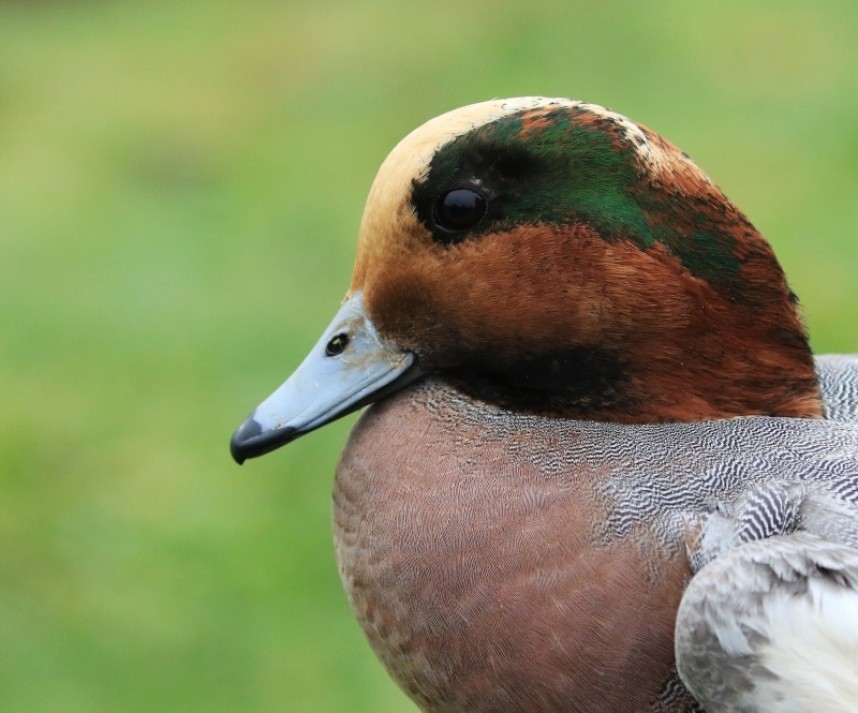
Male Wigeon © Dan Lombard
A male wigeon is a very smart bird in winter. The photo above shows an unusually large area of green in the head, a feature which is thought to be more evident in birds originating from the Russian breeding population. These birds reach here every year; a fantastic ringing recovery involved a bird ringed at Filey in December 2018 recovered in Nekrasovsky in Russia September 2019, 2559km east of North Yorkshire!
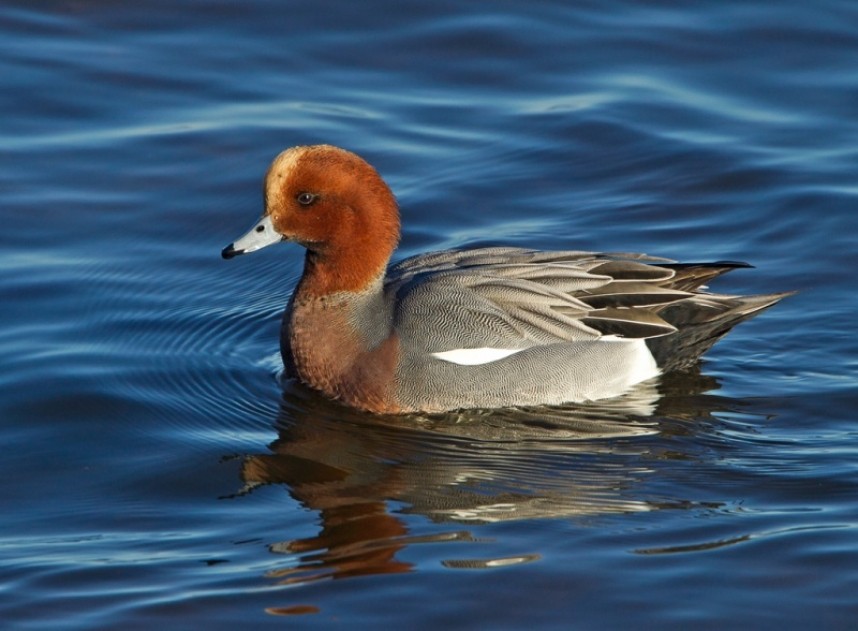
Male Eurasian Wigeon © Steve Race
Many species of duck time their annual ‘best dress’ moult to coincide with late autumn. This is a great strategy for successful breeding; find your partner in the winter, fly back to your breeding grounds together and then your ready to nest straight away.
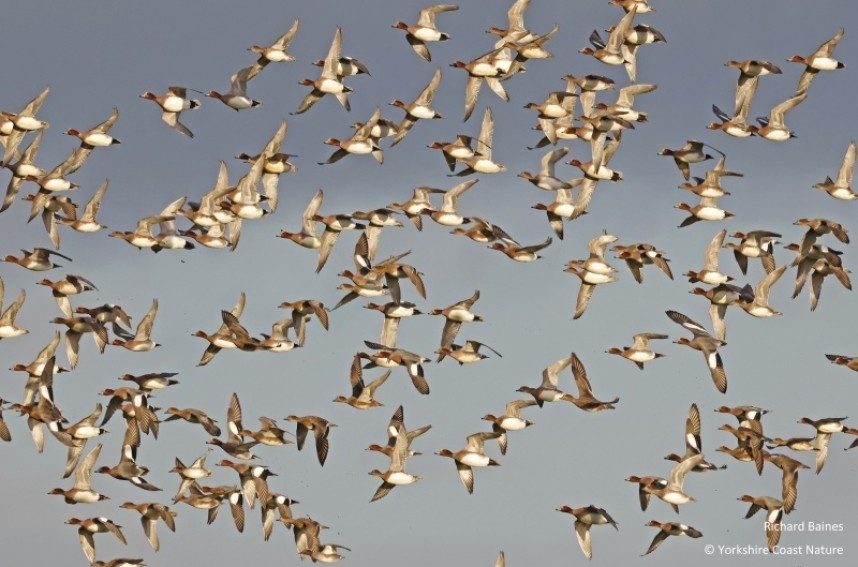
Eurasian Wigeon flock near Hedon East Yorkshire December 2022 © Richard Baines
A whistling flock of wigeon in mid-winter is almost guaranteed to contain lots of courtship with small groups of males showing off their new plumage to females and driving off competitors. Listen carefully for the different call of the female, more of a soft roar than a whistle. Adults usually pair up earlier than juveniles in this first winter period.
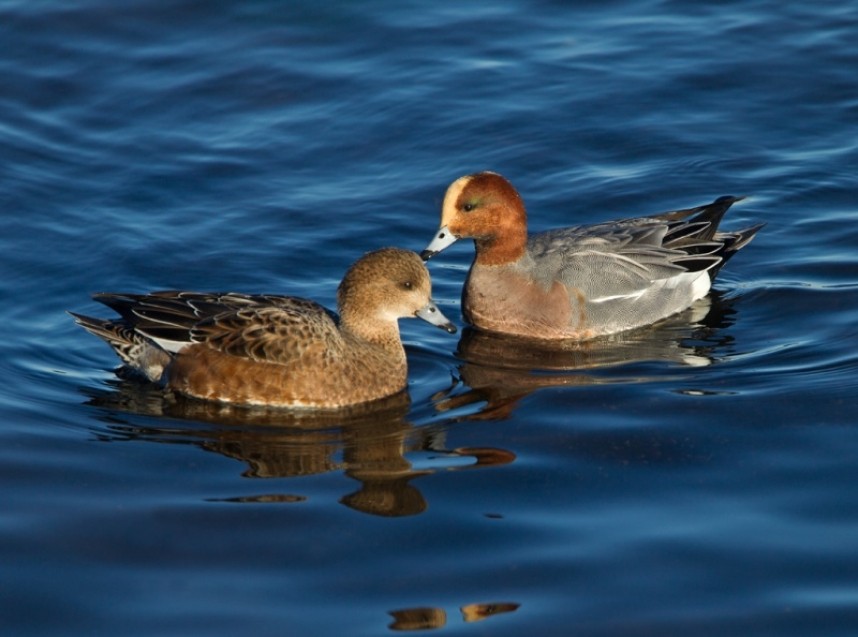
Female and Male Eurasian Wigeon © Steve Race
Wigeon are grazing wildfowl; they feed on a wide variety of nutritious vegetation. They also love to be close to water which not only provides safety from predators but also opportunities for drinking and bathing. In East and North Yorkshire, they are equally at home on The Humber estuary feeding on salt marsh plants, on freshwater wetlands such as Wheldrake and the Lower Derwent Valley National Nature Reserve or on the rugged North York Moors National Park coastline.
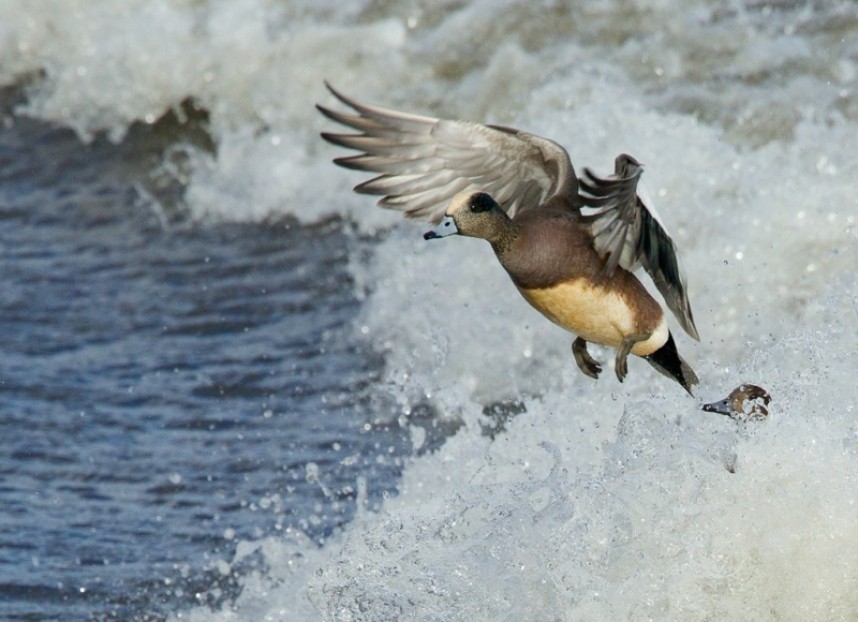
American Wigeon Scalby © Steve Race
On the North Yorkshire coastline look out for them at Scalby Mills just north of Scarborough where a regular flock can be seen on the shoreline feeding on seaweed at low tide. Keep a keen eye out for anything unusual, this flock sometimes attracts rarer species such as the American wigeon seen here in winter 2016 and beautifully captured by Steve in the photo above.
Richard Baines
Yorkshire Coast Nature



 Back to Blog
Back to Blog
